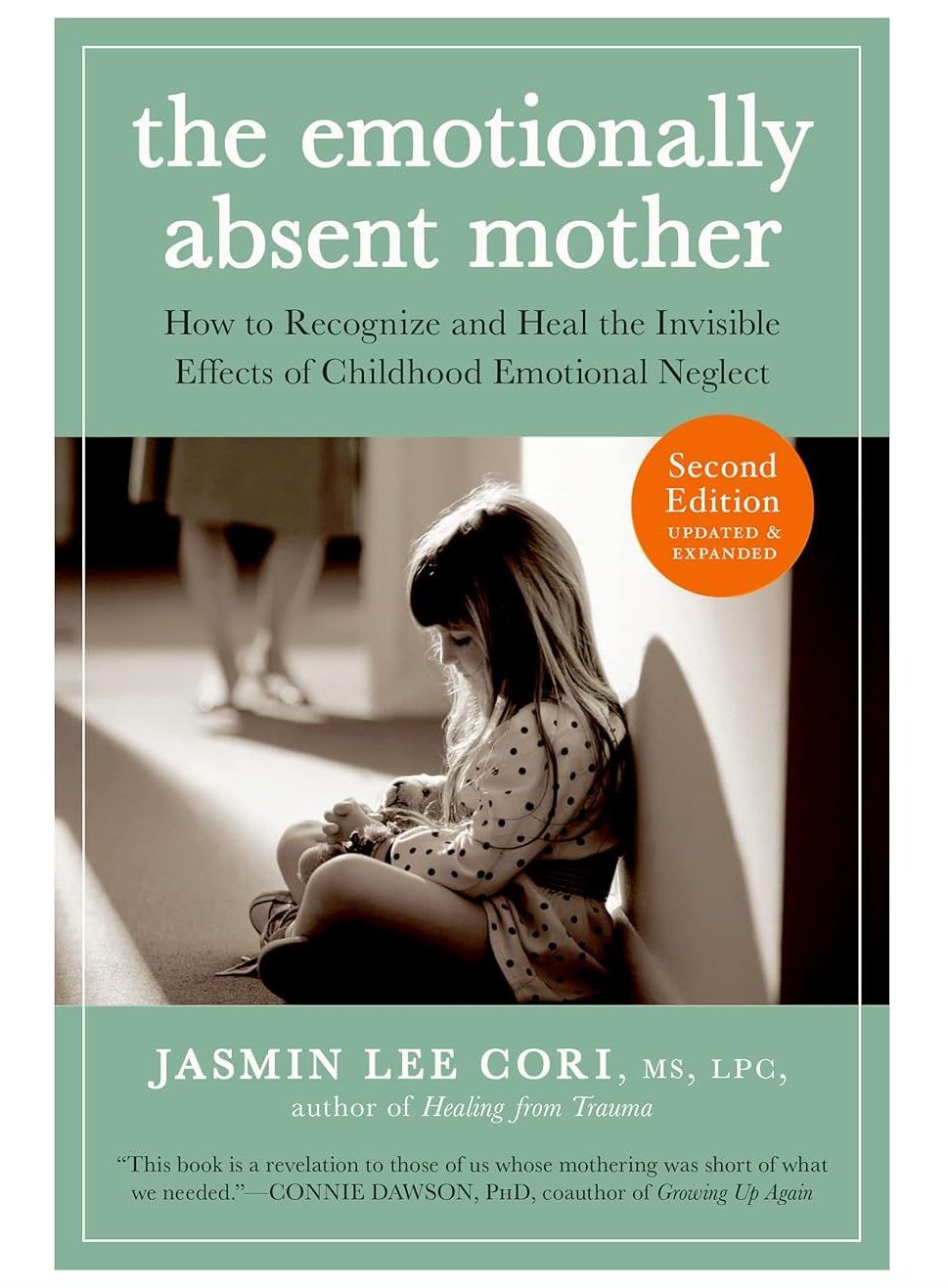Slide menu to view all options
The Emotionally Absent Mother: How to Recognize and Heal the Invisible Effects of Childhood Emotional Neglect
Table of Contents (abbreviated)
Introduction to the Second Edition
Part I: WHAT WE NEED FROM MOTHER
1. Mothering
2. The Many Faces of the Good Mother
3. Attachment: Our First Foundation
4. More Building Blocks
Part II: WHEN MOTHERING GOES WRONG
5. Mommy, Where Were You?
6. Living With an Emotionally Absent Mother
7. Childhood Emotional Neglect and Abuse
8. What’s Wrong with Mother?
Part III HEALING MOTHER WOUNDS
9. The Process of Healing
10. Connecting with Good Mother Energy
11. Inner Child Work
12. Psychotherapy: Mother Issues and Mothering Needs
13. More Healing Steps and Practical Strategies
14. Changing the Story
“With compassion and sparkling clarity, Jasmin Lee Cori describes the effects of being under-mothered and what it takes to overcome them. Her book will be of great value to new mothers serious about creating a loving environment for their children, adult sons and daughters who want at long last to fill the holes in their hearts, and clinicians interested in understanding and healing the mother wound.”
-Evelyn Bassoff, PhD, psychotherapist and author of Mothering Ourselves: Help and Healing for Adult Daughters
“With a compassionate and steady voice, Jasmin Lee Cori guides the reader through the difficult terrain faced by adults who have grown up without sufficient emotional mothering. Relying on personal experience and practice as a psychotherapist, she provides insight and tools to help readers overcome the challenges of a painful childhood and to move into the pleasures of living adult life fully.”
-Kathryn Black, M.A. psychotherapist, author of Mothering Without a Map.
“This book is a revelation to those of us whose mothering was short of what we needed. The author sensitively and authoritatively weaves developmental principles into a compassionate understanding of what it means to be undermothered.”
-Connie Dawson, PhD., coauthor of Growing Up Again: Parenting Ourselves, Parenting Our Children
"Jasmin Lee Cori has done a superb job of describing the importance of childhood attachment needs and the psychological wounds that get inflicted when an emotionally absent mother cannot meet those needs well enough. She has skillfully laid out clear steps wounded adults can take to identify their inner strengths and heal attachment wounds. I wholeheartedly recommend this book for anyone who wishes to understand and heal the wounds that can arise when parented by an emotionally absent mother.”
-Shirley Jean Schmidt, M.A., L.P.C., psychotherapist and author of The Developmental Needs Meeting Strategy: An Ego State Therapy for Healing Adults with Childhood Trauma and Attachment Wounds
“This book effortlessly intertwines neuroscience with clinical acumen in a lovely work of extraordinary depth. In her compelling, heart-rending analysis of the importance of motherhood, Jasmin Lee Cori has created a work as significant as Alice Miller’s Prisoners of Childhood. Easily accessible and very useful, it is a must-read for parents-to-be, those in the helping professions, and adults who have been wounded by a negligent parent.”
-Kate Crowley, OTD, OTR/L, University of Southern California
The Hole Where Mother Was Supposed to Be
To feel that you aren’t important to your mother leaves a hole. Most often it is felt as a hole in the heart. It’s the hole where Mother was supposed to be.
On close examination, there are three layers to this. The first layer is the outer one related to the external lack. Here the absence of mother may be evident in unsupervised, under-nurtured, under-socialized children. It shows up in children whose development is a bit slower than it needs to be because they haven’t gotten the individual attention and support for their growth of language, motor skills, and earliest academic skills.
The second layer is the hole in the sense of self that results from being undermothered. If we want to be precise, we can view this as a family of holes. There is the hole left by feeling unloved, the hole left when you’re not mirrored and consequently don’t feel fully real, the hole in your confidence that results from a lack of encouragement and praise, the sense of not belonging anywhere, and the hole of feeling homeless, among others.
One undermothered adult described to me the severe love hunger she was left with. “When there’s a hole in your heart, you can’t get enough,” she told me. Since she was premature at birth, she had been put in an incubator and missed out on the contact she would have normally had. This left her with a craving both for loving touch and for any kind of positive attention. Throughout her youth and young adulthood, she felt an intense need for affection and developed crushes on anyone who gave her any kind of positive recognition.
Sometimes this hole results in an extreme loneliness. One woman remembers at age four feeling a wave of loneliness and thinking, It’s the I-don’t-have-a-mother feeling. The rational part of her then countered that she did have a mother, so it was confusing.
The third layer comes into view when we look at how we mother ourselves and find the same deficits that were present in our actual mothers. We see that we don’t know how to support or encourage ourselves, don’t know how to be patient and tender, don’t know how to take into account our needs and limitations. Here, there is a hole in our inner mother.
(from chapter 5, Mommy, Where Were You?)

PRODUCT DETAILS
2010 1st edition
2017 2nd, expanded edition
Published by The Experiment, New York City
Available in paper, e-book, audiobook.
18 translations and growing.
Standard size paperback, 292 pps.